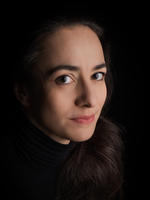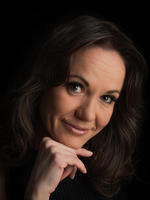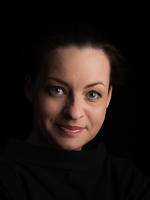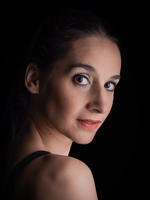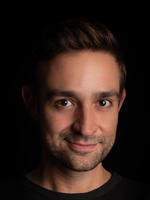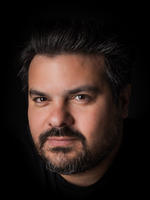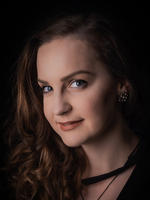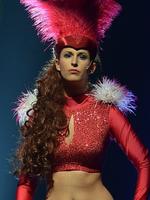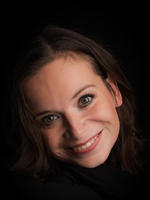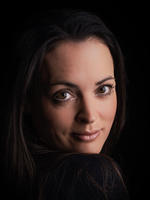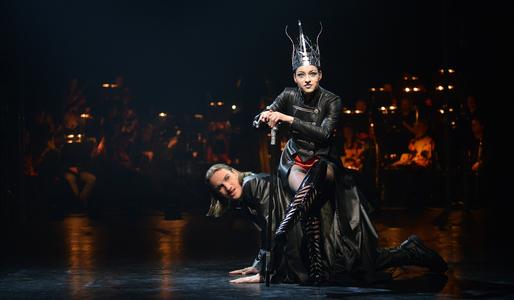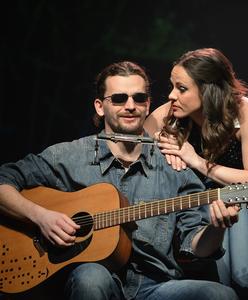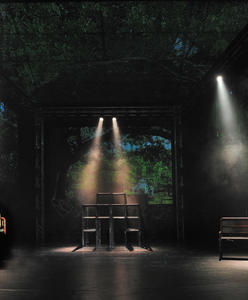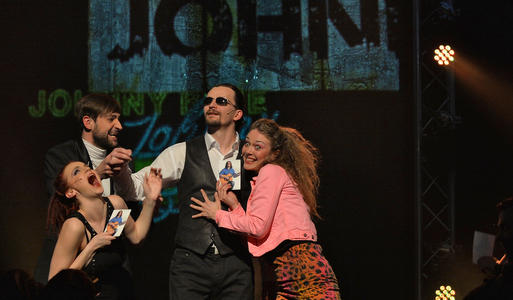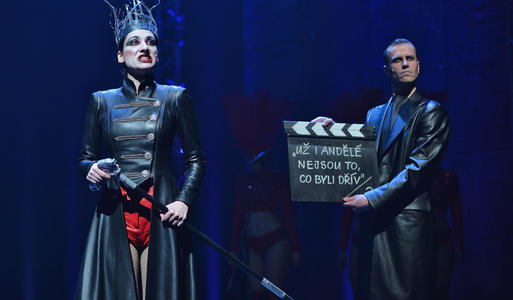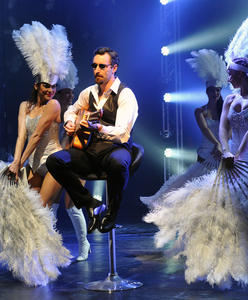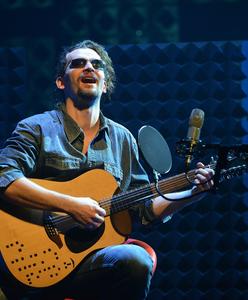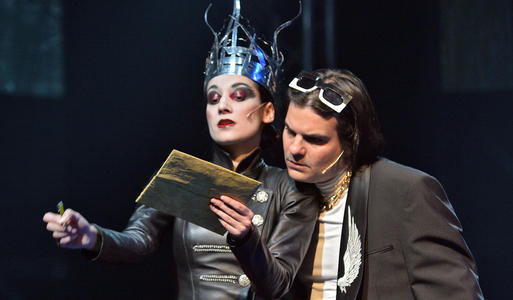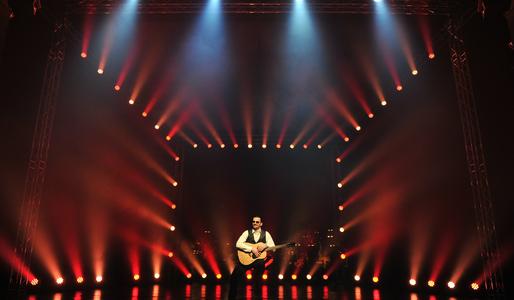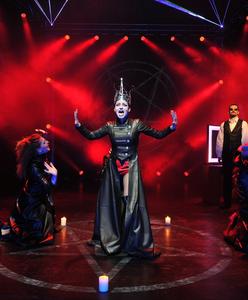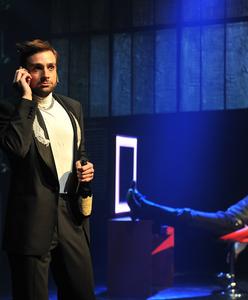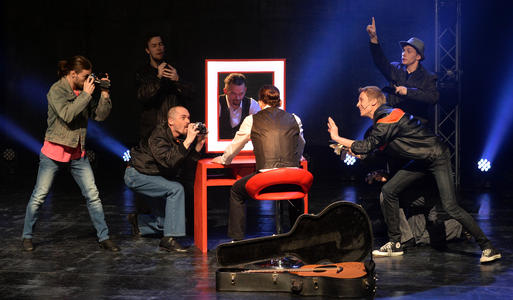Johnny Blue: Ralph Siegel’s musical premieres in the Czech Republic
Fuster Louis 12. April 2015 zdroj www.wiwibloggs.com
Fancy a very Eurovisiony night out at the theatre? Do you happen to live near Brno, Czech Republic? Then lucky you! Ralph Siegel’s new musical “Johnny Blue” premiered in the Czech city last week and it was a great success. And how could it not? It features 90% of his Eurovision entries.
For many years, Ralph Siegel has been writing and composing entries for the Eurovision Song Contest. No less than 22 of his songs (counting this year’s Sanmarinese entry ‘Chain of Light’) have graced the Eurovision stage, while 49 more of his compositions have taken part in National Finals all over the continent, from Ukraine to Ireland to Germany to Malta. You may love him or hate him, but no one can deny that Ralph Siegel is a part of the Eurovision history. And now there’s a musical which celebrates that fact.
“Johnny Blue” weaves 38 of those songs around the adventures of Johnny Blue, a talented and unknown blind musician who suddenly reaches success with the “help” of Fred, a mean old friend of his who only wants to make a fortune out of poor old Johnny’s talent. A vile devil who narrates the story while singing to Germany’s 1980 entry ‘Theater‘ and Johnny’s lover Marie complete the cast of the musical.
Does this story sound familiar? Maybe not to the youngsters, but if you’re a more experienced fan (or mostly a ESC history freak) you’ll remember that’s the same story which led Lena Valaitis to second place for Germany in 1981.
The musical has been written and directed by the Czech director Stanislav Mosa, and that’s why it premiered in his home city, Brno.
Around 700 people filled Brno’s Mestské Divadlo theatre on opening night. At the end of the show the public gave a thirteen minute standing ovation. Besides Ralph Siegel, the audience included Dorkas Kiefer, one of the members of MeKaDo (Germany 1994) and Valentina Monetta, the Sanmarinese diva with whom Siegel teamed up in 2012, 2013 and 2014.
Everyone’s favourite Sanmarinese artist (until we met Michele and Anita, of course) must have felt flattered during the show. We don’t know if Valentina could understand any bit of Czech, but she surely she loved hearing ‘Crisalide’ and ‘Maybe’ in Czech. Scroll down to 10:02 in the video at top for ‘Crisalide’ and to 16:00 for ‘Maybe’ (or Mozna, in Czech).
The musical will have 14 more reprises in Brno in June, after this year’s Eurovision, at which Ralph Siegel will fly the Sanmarinese flag once again. So if you still haven’t got plans for the start of summer, you should consider this Czech slice of your favourite contest.
The wiwibloggs team sincerely hopes that Johnny Blue will be a success in Brno, not only for Mr. Siegel’s sake, but also for the Czechs, who will be able to get a broader taste of what Eurovision is like. If Siegel’s musical unleashes the Eurovision-mania in the Czech Republic, it’ll certainly be worth a big party, don’t you think?
Zdroj: http://wiwibloggs.com/2015/04/12/johnny-blue-ralph-siegel-musical-czech-republic/90980/
THE MUSICAL JOHNNY BLUE: A FAUSTIAN THEME IN A MODERN STYLE, WITH SONGS BY RALPH SIEGEL
Silvie Kostovská 12. April 2015 zdroj www.generace21.cz
He took Ralph Siegel´s songs, thought of a story and made a musical out of it. Who? None other than Stanislav Moša, Brno City Theatre’s manager, director and script writer, so bringing this tale about a blind street singer, Johnny Blue, to the theatre stage.
A devilishly good central quartet
Aside from the acting it is the singing performances that every good musical depends upon, and at this show we could see the cream of the crop. The role of the blind singer Johnny Blue was played and sung with ease by Dušan Vitázek. Dušan is an experienced musical actor who has many great roles to his name (let´s mention at least the double role of Jekyll and Hyde in the musical of the same name, and the role of Sam in the musical GHOST) and so it isn´t surprising that he was chosen for the role of Johnny, who plays a twelve-string guitar and a harmonica during the show.
Lucie Bergerová, Thalia Award-holder and member of the Těšín Theatre ensemble, played his girlfriend Marie. Radka Coufalová delivered a completely unbeatable singing performance as the devil Satana; she was simply demonic and the whole stage was hers every time she appeared. The central quartet was completed by Aleš Slanina as Fred, who spiced up the whole performance with his jokes.
A tribute to Ralph Siegel´s work
This could also be the subtitle of this musical. The whole of it is built specifically on Ralph Siegel´s songs, translated into Czech by Stanislav Moša and brought to the stage by Karel Cón and Ema Mikešková. An equally important component of the musical is its choreography, of which Hana Kratochvilová was in charge.
The devil wears Prada
I don´t know if it is really Prada or not - it doesn´t matter - but what I know for sure is that Andrea Kučerová´s costumes for this performance are exquisite! These include the colourful costumes seen in the group dance numbers, the clothes which illustrate Johnny´s transformation from a street singer into a big star, and the costumes reminiscent of the flames of hell which are worn by the orchestra. The musicians weren’t hidden somewhere under the stage in this performance, being placed behind the actors instead. Also with regard to the costumes, Satana stood out in her black leather coat, red shorts and black high-heeled boots, which greatly complemented the image of this already perfectly realised character.
The stage arrangement is also interesting. Alongside the standard three projections (on the left, at the back and on the right), scenographer Petr Hloušek added a fourth one – on the ceiling!
A fairy tale for children and adults
The musical Johnny Blue shows the deterioration of our society, where people don´t mind parasitizing the success of others in order to achieve their own goals, and offers criticism of negative human traits such as pride and jealousy. I think it’s necessary to be reminded of this constantly these days.
THE MUSICAL JOHNNY BLUE OFFERS A COLOURFUL COCTAIL OF RELAXING MUSIC
Markéta Turková 8. April 2015 zdroj www.munimedia.cz
(…) Even though Březinová´s Satana doesn´t smell of sulphur or evoke fear with her very presence, she does get under one´s skin quietly, inconspicuously and enticingly, within red cones of light. With a crown on her head, her resonant voice and those shorts of a devilish length, she represents a present day imagining of evil. (...) The musical offers a rich mixture of genres, the music is catchy and quite a few spectators tap their feet to it. (...) Let´s praise the wit in Moša´s Czech production - the situational humour based on the beauty of the Czech language never gets boring. (...) Inventive choreography and costume changes, dancers hopping in jeans and waltzing in ball clothes - all this is involving and entertaining. (...) The musical, which gives a human face to the abstract fight of good against evil, is somewhat untraditional and hard to compare with anything else. Even though it makes one think, its main aim is to entertain and it does this very well. (...)
JOHNNY BLUE - A FESTIVAL OF SONGS BY A GERMAN HIT MAKER
Lukáš Dubský 5. April 2015 zdroj www.i-divadlo.cz
Originally, Brno City Theatre announced the German musical Sold Laughter in the dramaturgical plan for this year´s season. In the end, a different Faustian-themed piece got staged in Brno this year as a world premiere – a musical by the theatre’s director, Stanislav Moša – Johnny Blue. Moša was contacted by Berlin agency Gallissas to create a production featuring songs by the famous German hit maker Ralph Siegel, whose songs are regular Eurovision participants, and thus a classic hit musical in a style similar to the currently popular title Mamma Mia was born. Siegel’s time-tested songs became the basis for Moša´s tale of the human soul and the temptations which people have to constantly resist.
The main hero is a blind singer, Johnny Blue, who becomes a media star under the influence of his greedy friend from his youth. Johnny wins a singing contest in Moscow and says yes to an offer from the mysterious Satana to give him the gift of sight. However, she wants Johnny´s soul in exchange, leaving the singer one month to decide whether he will accept this transaction or if he’d rather lose his sight again. Captivated by his success and new perspective on the world, Johnny succumbs to the lure of an easy life full of glitter and turns away from his long-standing love, Marie.
There are obvious advantages to basing a musical on existing songs. One of them is certainly that each song from Brno’s new musical has the potential to become an independent radio hit. The songs are melodic and popular with listeners, and certain tunes will stick in spectators´ heads long after their visit to the theatre. The very good translation by Stanislav Moša provides very melodic and memorable refrains.
Siegel mainly writes classic pop melodies, sometimes with hints of disco (Party) or country (I will exchange the summer, but also the titular Johnny Blue). The members of Brno’s ensemble often face greater musical challenges, and so it isn´t surprising that their singing is almost flawless. The musical component works well, for which Karel Cón´s completely new instrumentation deserves a great share of the credit. He had to adapt roughly thirty songs to create a unified style for the piece, and it probably wasn´t at all easy in the case of some of them. For example, if we listen to the original version of the song Grandmother (sung by Karel Gott), it is hard to imagine that it could be used in a contemporary musical – but hey, it works!
Dušan Vitázek sings well and this time also shows off his great musical talent to the audience when he accompanies many songs on the guitar and harmonica. Svetlana Janotová also acts and sings with great self-assurance in the role of Marie, where she is well cast. However, I would consider Andrea Březinová to be the star of the evening this time around. Of all the participants, it is she that has to demonstrate the widest vocal range. The song Tyjátr suits her excellently, but she also manages the song Roman Bells which is set unusually high for her voice.
As for the costumes, Satana’s is definitely the most elaborate and attention-grabbing. Costume designer Andrea Kučerová also had the opportunity to use her imagination in the Moscow scenes or when the protagonists are time travelling in Rome.
BLIND SINGER JOHNNY BLUE: A NEW MUSICAL CHARACTER IS BORN IN BRNO
Peter Stoličný 31. March 2015 zdroj www.musical-opereta.cz
Theatre director, librettist and director Stanislav Moša definitely isn´t a typical artist. To date, one year before his sixtieth birthday, he has directed over one hundred and fifty productions both in our country and abroad, he has authored several original musicals, and is a writer of song texts. If he were also an astrologist and an astronaut too, he would truly be a man from a fantasy world. Well, but let´s be serious. Moša is an extremely hard-working person and he manages to do a great many things at once. The March premiere of the musical Johnny Blue is yet another proof of this. The director knows his theatre and actors, and so was able to tailor the libretto and texts to fit the individuals involved exactly. As he has high quality actors who are simultaneously good singers and even active musicians, he has a lot of talent to choose from and this is the key to the resultant quality of the musical.
The co-author of the work is the very well-known German musical composer and text writer Ralph Siegel Jr. He’s called Junior because his father (1911–1972) was also an important German musical composer. However, the son has become more famous than his father, being the author of hundreds of songs for German as well as foreign singers. He has also recorded music with e.g. Karel Gott, and is the author of several songs which could be heard at the Eurovision song contests. Many of them have been sung for decades, and so the author is as well-known in German-speaking countries as e.g. Karel Svoboda in our country. Stanislav Moša got together with this very famous composer to choose songs of his which are in many cases also known here, and created a libretto about a blind singer who sells his soul to hell in return for the gift of sight. A girl who previously looked after the blind singer fights to get his soul back, and so, as should happen in a romantic musical, love is victorious even over the devil.
Karel Cón took charge of the production and arrangement of the musical, and the orchestra sounded excellent under his baton. The lighting effects which we saw from three sides of the stage as well as on the ceiling also played an important role in the show. Petr Hloušek did magic with projections and animations while the light direction was managed by David Kachlíř. In fact, there was no other source of on-stage magic except for the lights. It is common at the Music Theatre in Brno that the director is able to provide two equal alternate actors for the main roles. The title role, on which the whole production is dependent, would be impossible for many theatres for a start. The blind singer plays the guitar and the harmonica and also sings right in front of the spectators (no playback), just like a professional country musician. It was Dušan Vitázek at the pre-premiere, an actor with an incredibly wide range of talents. However, I know that the alternate actor for the role, Jiří Mach, does these things equally well. The same can be said about the character of loving Mary, sung and acted beautifully by Svetlana Janotová - I can also imagine that alternate actress Hana Holišová performs with equal quality. However, one other name, Lucie Bergerová, originally from Těšín Theatre (a Thalia Award laureate from last year), appears on the bill. She is probably also worth seeing and it is her first big role in Brno. Aleš Slanina in the role of Bastard Fred drew the spectators´ attraction with his significant contributions to the production; his sense for comedy and explosive acting were a real delicacy for the audience. However, he acts in alternation with Alan Novotný, who showed himself to be a great comedian in e.g. Charley´s Aunt. The character of Satana, played by Radka Coufalová, perhaps also needs to be mentioned. The combination of her costume, the lights and her menacing voice was really mystical. She alternates in the role with Andrea Březinová, who previously showed her skills e.g. in the role of Gloria in Flashdance. Other characters aren´t so important for the plot, but they still give their all and create a truly epic musical. Its diversity can be attributed not only to theatrical effects but also to Andrea Kučerová´s costumes. We also cannot fail to mention the flawless dance training of all involved, and the inventive choreography with many new elements, turns, gestures and skilful mise-en-scene by Hana Kratochvilová.
In this new musical the Music Theatre has a production crammed with many well-known as well as less-familiar songs by German hit maker Ralph Siegel, and with a libretto and texts by Stanislav Moša. The standing ovation at the end suggested that it will be a popular musical with theatregoers.
JOHNNY BLUE TRIUMPHS
Vratislav Mlčoch 30. March 2015 zdroj www.babocka.vram.cz
“The songs are great and it would be a shame not to make use of them” said author and director Stanislav Moša as he defended his project to recycle selected songs by German hit maker Ralph Siegel, who has written about two thousand such songs so far during the thirty years of his career, and Mr. Moša was right. The selection of songs was excellent and they fit the plot very well after Moša successfully created new texts for them and incorporated them into a witty story that’s just made for a typical successful musical. And when I say witty I mean it literally, you really will laugh. Then he brought in Brno City Theatre’s production team, which never disappoints, and when it was over the audience couldn´t stop applauding.
The second most important job (after the author’s) is the music arrangement for the piece. Karel Cón was in charge, and he had his work cut out trying to arrange the songs to make a uniform whole as the selection covered a wide time period. There were certain worries as to what Ralph Siegel, a well-known perfectionist, would say about the arrangement, but he already seemed very satisfied during the approval process. He radiated enthusiasm during the premiere, and thanked Mr. Moša and Mr. Cón profusely. This wasn’t surprising, as their work was of high quality. The songs in this musical take the lion’s share of the credit for its success, but not all of it. Petr Hloušek created a great stage set which evoked the podiums used at outdoor rock concerts. On its side wall, which is made of linen, projections of locations where the plot takes place are shown. And these aren´t static pictures, either, e.g. there are cars driving on the roads in the Moscow scenes.
Andrea Kučerová´s costumes are – how can one say it – in the typical musical style. There are short skirts as well as raincoats, dancers in flamboyant costumes and men in classic suits. Bastard Fred´s (Johnny´s manager) costume stands out in a brilliantly excessive nouveau riche manner. And there is also the devil Satana, with a high crown on her head, a long black leather coat, high black leather boots and very short red leather shorts. I will disappoint you, gentlemen, they are not of the skin-on-skin type, Satana doesn’t go quite that far. But she is constantly accompanied by a submissive character who’s also dressed in a black leather costume.
As I have already suggested, the story is typical musical-style fare. What else should it be? Johnny, a blind travelling musician who collects money in his guitar case from passers-by, meets a friend from his youth who makes him famous. Johnny, overwhelmed by his success and enjoying his new life, drives his girlfriend Marie away, even though she’d been more than good enough as a partner for him in the past. At the climax of his success, Satana arrives, pays Fred to disappear and offers Johnny the gift of sight in exchange for his soul. Johnny agrees under the condition that he will either confirm or cancel the agreement in a month. He continues having fun while Marie constantly dogs his footsteps, but with no success. “I won´t give him up so easily,” she swears. However, everything changes after a month. Johnny refuses to continue living it up and chooses instead to return to poverty and blindness, and to Marie, even though Satana promises him the whole world at his feet. Of course, here the author Moša is honouring the unwritten rule of musical stories, even though in reality his response would be completely the opposite. Who would resist, right? When “happiness is such a beautiful and luxurious thing but money, MONEY, MONEY...” Well, in reality, if Satana wanted only our soul in exchange for money, it would be a good business deal. But then those devils always want a lot more, MORE and MORE...

.JPG)



